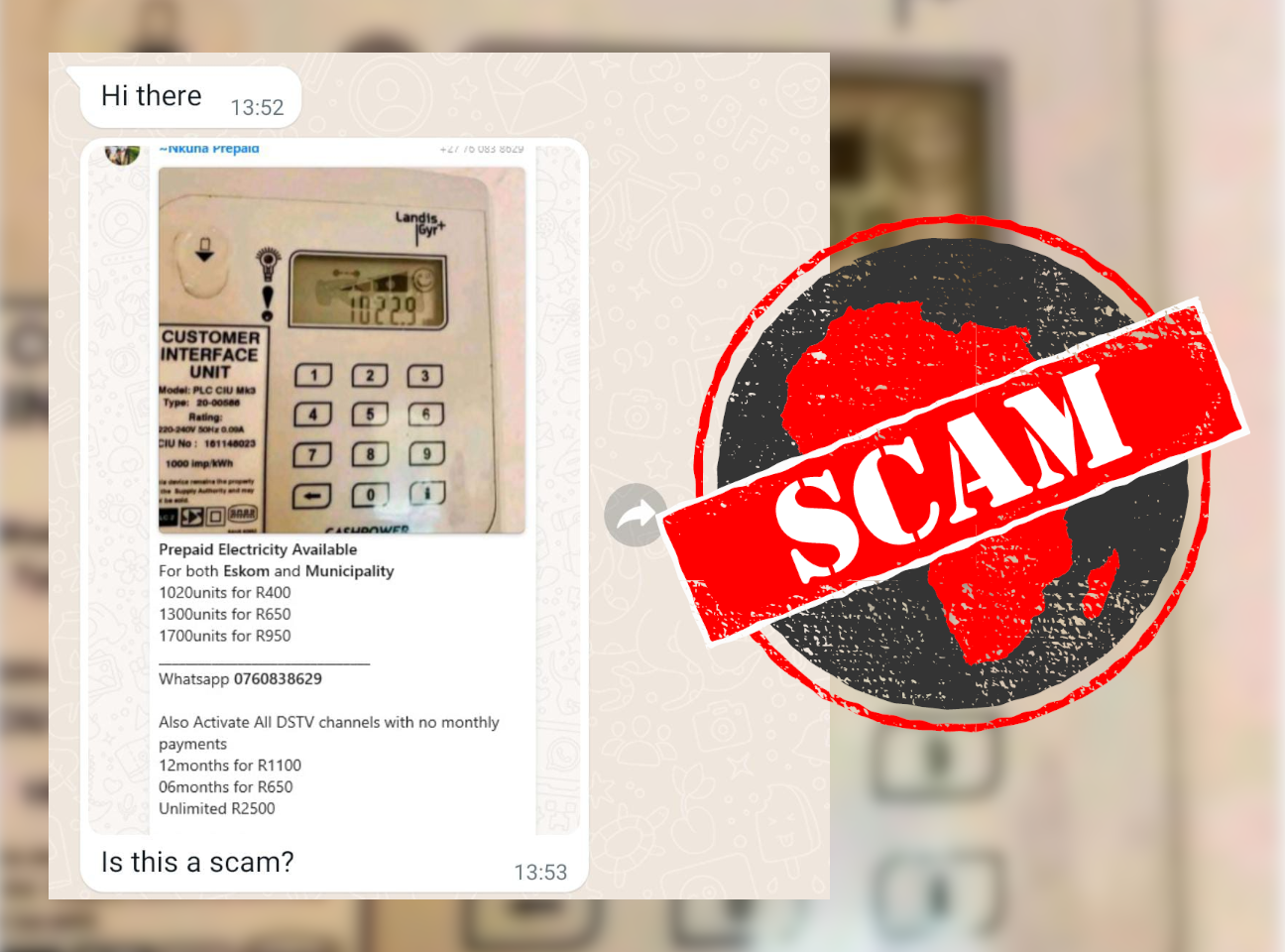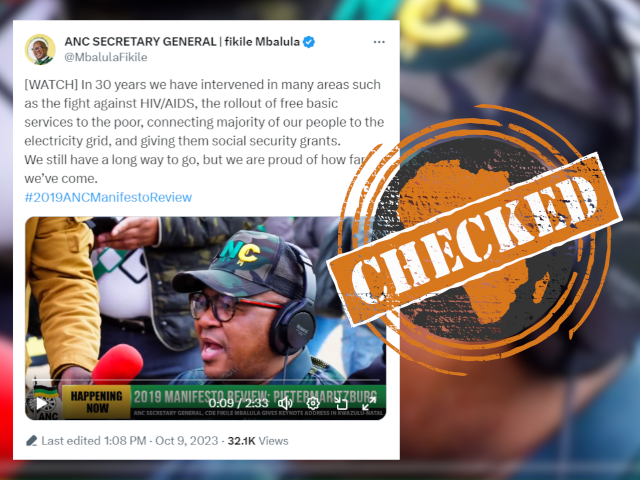IN SHORT: A message circulating on social media in South Africa claims to offer prepaid electricity to the public through unverified WhatsApp numbers. But it's a scam. Eskom advises customers to ignore these social media messages.
A message sent to Africa Check by our WhatsApp subscribers claims to offer prepaid electricity through the messaging app. The message includes a photo of a prepaid electricity meter.
“Prepaid electricity available for both Eskom and municipality,” the message begins, offering packages of units of electricity at varying prices, from “1020units for R400” to “1700units for R950”. It also includes a mobile phone number where readers can supposedly buy the electricity.
One unit of prepaid electricity is equal to one kilowatt per hour (kWh). The cost per unit varies depending on where you live in the country, what your prepaid meter supplier charges or whether you’re on an incline block tariff.
The same message has been posted on Facebook and is doing the rounds in South Africa, but with different phone numbers listed.
Most of the Facebook messages have been posted to public groups with thousands of followers.
For more than a decade, South Africa has been grappling with load shedding – planned power cuts when electricity demand exceeds supply. Residents are often left without power for hours at a time, causing frustration.
Electricity price increases often lead customers to look for cheaper ways to pay for their electricity. But do these viral messages truly offer cheaper options?

Signs of a scam
The first sign that the claim is a scam is the lack of information in the message, such as where the electricity would be purchased or how much the supplier fee would be.
The message does not link to a verifiable website, name the supplier or give the number of a registered electricity supplier. This anonymity is a red flag.
Because it lacks a source, the message cannot be verified, another red flag. Registered vending points or electricity suppliers could be easily verified by a simple Google search for their names or contact details.
In addition to scamming social media users out of money with no guarantee of electricity, messages like these can also trick users into giving out their personal information.
For tips on how to avoid online scams, read our guide.
‘Customers are advised to buy credit tokens legally from registered vending points,’ says Eskom
In December 2023, Eskom published a statement on its website warning its customers to be wary of scam posts like this that were making the rounds on social media.
There are several cheap electricity adverts on social media aimed at scamming customers to part with their hard-earned cash. The scammers falsely advertise prepaid electricity for the municipality and/or Eskom on Facebook, X or WhatsApp.
According to the statement, customers were “duped for their hard-earned cash without receiving any recharge credit and often have no recourse”.
“Customers are advised to buy credit tokens legally from a range of different registered vending points including banks, retail shops, smart phones, internet and ATMS,” the statement said.
It told customers to report these illegal electricity sales anonymously to the Eskom crime line on 0800 11 27 22.
Africa Check previously debunked a similar claim that was making the rounds in Kenya. Don’t fall prey to online scams like these and buy electricity from verified portals.
Republish our content for free
For publishers: what to do if your post is rated false
A fact-checker has rated your Facebook or Instagram post as “false”, “altered”, “partly false” or “missing context”. This could have serious consequences. What do you do?
Click on our guide for the steps you should follow.
Publishers guideAfrica Check teams up with Facebook
Africa Check is a partner in Meta's third-party fact-checking programme to help stop the spread of false information on social media.
The content we rate as “false” will be downgraded on Facebook and Instagram. This means fewer people will see it.
You can also help identify false information on Facebook. This guide explains how.





Add new comment